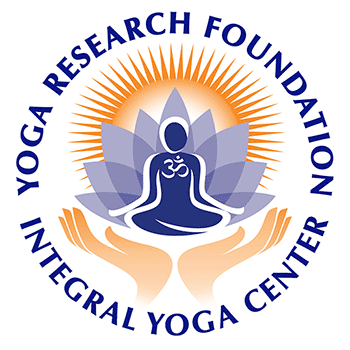Karma Yoga, a core component of Integral Yoga, offers a transformative path toward personal development and spiritual enlightenment. Rooted in the ancient wisdom of action and reaction, this discipline teaches us that our every deed—conscious or unconscious—plays a crucial role in shaping our destiny. From the involuntary acts of breathing and sleeping to the voluntary decisions we make daily, each action is a thread in the intricate tapestry of Karma, binding us to the universal cycle of cause and effect.
Understanding the Essence of Action in Karma Yoga
At the heart of Karma Yoga lies the profound principle that our actions, thoughts, and words are not merely personal choices but are interconnected with the cosmos’s vast, dynamic flow. To truly grasp the essence of Karma Yoga, one must delve into the nature of action itself. This exploration reveals that our engagements, whether voluntary or involuntary, are manifestations of our deeper engagement with the world. They are expressions of our being, mirroring our innermost intentions and desires.
The Threefold Nature of Actions
Fostering Harmony Through Positive Actions
Karma Yoga teaches us that actions can be broadly classified into three categories, reflecting the multifaceted nature of human behavior. Actions that promote harmony, compassion, and patience are deemed positive, contributing significantly to our personal growth and the well-being of those around us. These actions, imbued with love and selflessness, pave the way for positive Karma, nurturing an environment of mutual respect and understanding.
Navigating the Path of Negative Karma
Conversely, actions driven by negative emotions such as hatred, jealousy, and selfishness lead us down the perilous path of negative Karma. Such deeds, rooted in the lower aspects of our nature, result in turmoil and suffering, echoing the universal truth that every action triggers a corresponding reaction. The challenge lies in recognizing and transforming these impulses, steering our actions toward positivity and light.
The Complexity of Human Actions: A Blend of Good and Bad
Most intriguingly, Karma Yoga acknowledges that the majority of human actions are a blend of good and bad. This complexity underscores the nuanced nature of our existence, where purity and flaw coexist, offering us endless opportunities for growth and self-reflection. It is within this gray area that the true challenge and beauty of Karma Yoga unfold, inviting us to navigate the delicate balance between right and wrong with awareness and compassion.
The Inescapable Law of Karma: Beyond Action and Reaction
Karma Yoga unveils the intricate law of Karma, which extends far beyond the simplistic notion of action and reaction. This cosmic law intricately processes where every action leaves an imprint on our unconscious, shaping our future experiences and destinies. Positive actions often set the stage for favorable circumstances, while negative deeds can lead to challenges and hardships. Yet, Karma Yoga teaches us that nothing in life is accidental; every moment and every experience is a reflection of our past actions, woven into the fabric of our being by the threads of Karma.
Transforming Life Through the Wisdom of Karma Yoga
Embracing the Teachings of Karma Yoga for Personal Growth
Karma Yoga offers a luminous path for navigating the complexities of life, guiding us to make choices that lead to a fulfilling and meaningful existence. It teaches the art of acting without attachment to outcomes, encouraging selfless service that benefits not only ourselves but the world at large. This selfless approach to action is a cornerstone of Karma Yoga, fostering a sense of detachment and equanimity in the face of life’s fluctuating fortunes.
The Philosophical Underpinnings: Detachment and Selfless Service
At the core of Karma Yoga is the principle of Nishkama Karma—action performed without any desire for personal gain. This philosophy underlines the importance of detachment from the results of our actions, urging us to focus on the act of giving rather than receiving. By embodying this ethos, we align our deeds with the higher purpose of serving the divine will, transcending the ego’s limitations and embracing a life of purpose and meaning.
Karma Yoga in Practice: Stories and Analogies
At the heart of Karma Yoga lies a profound story that vividly encapsulates its essence—a tale of two peasant daughters with conflicting desires, one married to a potter and the other to a farmer.
The first daughter, whose husband’s livelihood depended on the creation of clay pots, prayed for the absence of rain to ensure the drying of their wares under the sun. Conversely, the second daughter, wedded to a farmer, wished for rain to nourish the crops that sustained their family. Caught between these opposing requests, their father realized the futility of attempting to control the forces of nature to suit individual desires. This narrative teaches us the importance of surrendering to the divine will, illustrating the core principle of Karma Yoga—acting without attachment to outcomes.
Conclusion: The Path Forward with Karma Yoga
As we delve deeper into the essence of Karma Yoga, it becomes evident that this spiritual practice offers a profound pathway to personal and collective transformation. By integrating its principles into our daily lives, we embark on a sacred journey toward enlightenment, where every action becomes an offering to the divine, and every moment is an opportunity for growth and self-realization.
In embracing the path of Karma Yoga, we commit to a life of purpose, where our actions reflect our highest intentions, and our lives become a testament to the transformative power of selfless service. It is a journey that calls for courage, humility, and an unwavering dedication to the greater good, promising a future filled with light, love, and universal harmony.
In exploring the foundational principles of Karma Yoga, we’ve uncovered the profound impact this practice can have on personal development and spiritual enlightenment. By embodying selflessness in action, we open ourselves to transformative growth.
For those eager to explore more about Karma Yoga and its role within the vast teachings of Integral Yoga, Swamiji’s “Integral Yoga: The Secret to Enlightenment” is an essential resource, full of insights and guidance.
Next in our series, we delve into the transformative power of Karma Yoga in the workplace. How can the principles of selfless action and detachment revolutionize our professional lives? Stay tuned for Part 2, where we explore Karma Yoga in the Professional Sphere.
Questions and Answers on Karma Yoga
What is Karma Yoga and how does it work?
Karma Yoga is a spiritual path in yoga that focuses on selfless action performed for the benefit of others. It teaches practitioners to engage in their daily duties without attachment to the outcomes, transforming routine actions into spiritual practice and leading to inner peace and enlightenment.
Can Karma Yoga be practiced by anyone?
Absolutely. Karma Yoga is accessible to everyone, regardless of their background or belief system. It can be seamlessly integrated into daily life by performing actions with mindfulness and a spirit of service, making every task, from the mundane to the significant, a part of one’s spiritual journey.
How does Karma Yoga differ from other forms of yoga?
While most forms of yoga emphasize physical postures (asanas) or meditation (dhyana) for spiritual growth, Karma Yoga focuses on action. It’s the yoga of doing, where the act of selfless service and detached engagement in daily activities leads to spiritual awakening, distinguishing it from the introspective nature of other yoga paths.
What are the benefits of practicing Karma Yoga?
Practicing Karma Yoga leads to numerous benefits, including reduced egoism, increased feelings of connectedness with others, enhanced peace of mind, and the development of a selfless attitude towards life. It also fosters a sense of inner joy and satisfaction from living a purpose-driven life.
How can I start practicing Karma Yoga in my daily life?
Begin by setting an intention to perform your daily activities as offerings to the greater good, without seeking personal gain or worrying about the results. Whether you’re at work, engaging in household chores, or helping others, do so with mindfulness and compassion. Gradually, this practice will deepen, becoming a natural part of your daily routine.
Is it necessary to follow a religious path to practice Karma Yoga?
No, Karma Yoga is not bound by any specific religious doctrine. It is a universal practice that emphasizes action and service, making it applicable and beneficial to individuals from all walks of life and spiritual beliefs.
See Discovering Yoga: A Beginner’s Guide to Uniting Mind, Body, and Spirit – Part 1
Also see “Essence of Karma Yoga” by Swami Sivananda: https://www.dlshq.org/download/essence-of-yoga/#_VPID_8

